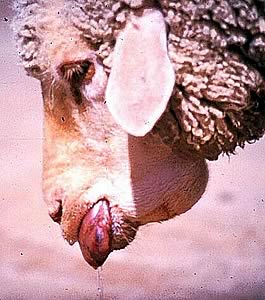 |
|||||||||
|
|||||||||||||||||||
|
|
Bluetongue prevention measures stepped
up The EU today agreed trade restrictions to control of the spread of Bluetongue following positive laboratory tests results for the disease.
All exports of cattle, sheep and deer from Belgium and the affected regions of the Netherlands and Germany will be prevented. In addition the countries have imposed Protection zones and Surveillance Zones around the infected farms. Bluetongue does not affect humans, but is highly infectious in sheep. The virus is known to occur in Mediterranean EU countries, but it is thought that the warm weather this summer has allowed the biting midges which transmit the disease to survive further north. Defra has also announced today testing and additional surveillance on all recent imports from affected countries into the UK. Debby Reynolds, Chief Veterinary Officer for the UK has urged sheep and cattle keepers to remain vigilant for the signs of the disease, and take biosecurity measures. She said: “These cases of Bluetongue are a significant development for farming in North West Europe. Anyone who keeps sheep, cattle, deer and goats should be on the alert for abnormal behaviour or illness and report it to the State Veterinary Service. There is also an obligation to report recent imports of animals to the UK. "This is normally considered to be a disease which mainly affects sheep, but unusually we have received reports of cattle displaying signs of illness.” Notes:
|
||||||||||||||||||

|
|
||||||||||||||||||
| home | agri-services | pedigree
pen | news | dairy | beef | machinery quota | property | organisations | site map |
|||||||||||||||||||

Department for Environment
Food and Rural Affairs
